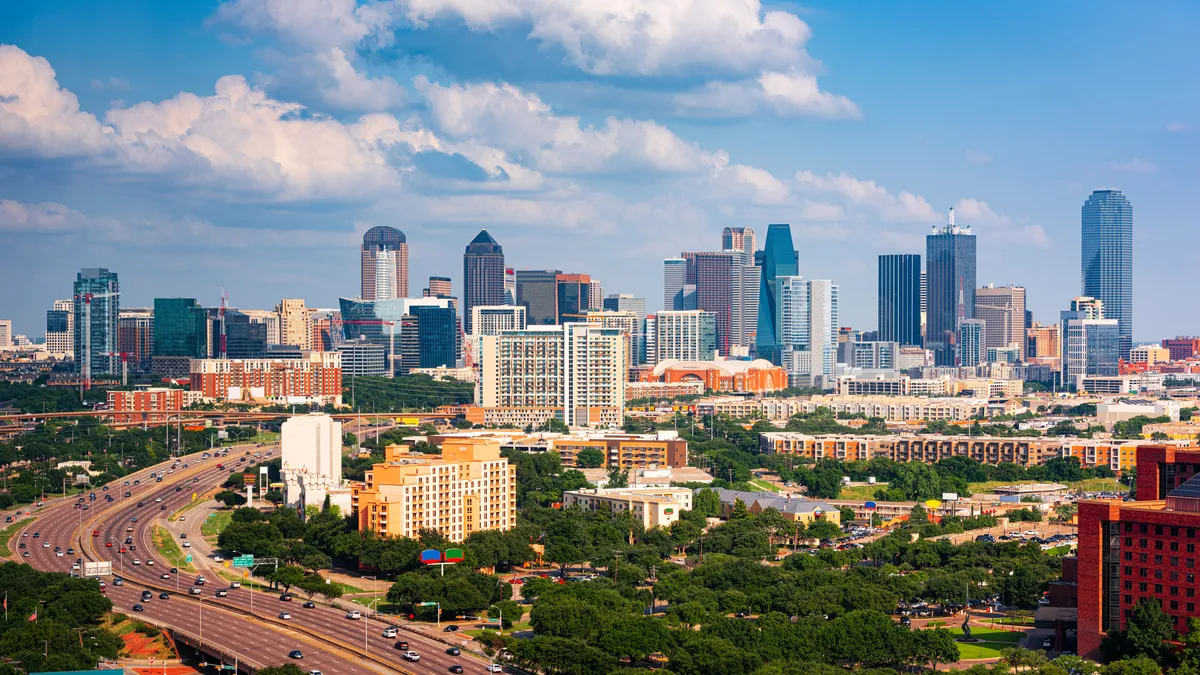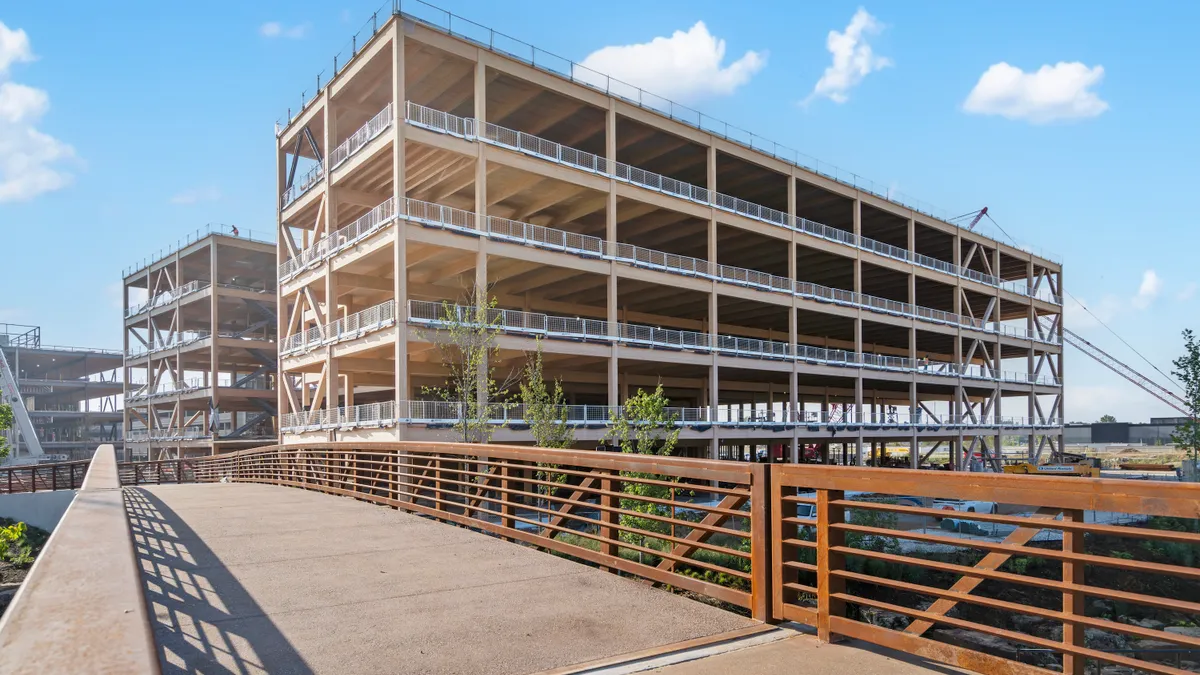Safety plays a pivotal role in all aspects of construction, as it can affect project efficiency, profits, employee retention and the general perception of the industry. Safety Week 2016 is underway, and construction stakeholders are coming together to emphasize the need for greater focus on building a culture rooted in safety.
Richard Cavallaro, CEO and president of Skanska USA, touts his focus on safety above all else. A 30-year veteran of the construction industry, Cavallaro was also elected chair of the New York Building Congress earlier this year.
Cavallaro said he aims to help alter the perception of the construction industry, as ethical and safety issues in the past have created a "terrible reputation" for building companies. He noted that beyond safety, construction firms need to improve employee training in the midst of a rapidly evolving industry. "In my view, the only thing that will slow growth down is our ability to train people," he said.
In an interview with Construction Dive, Cavallaro explained the demons still lingering in the industry, his goals to improve safety and perception of construction companies, and the client's role in demanding higher safety standards from contractors.
Editor's note: This interview has been edited and condensed for clarity.
CONSTRUCTION DIVE: What is Skanska doing to promote Safety Week?
CAVALLARO: Safety Week has been something that Skanksa's done for over 10 years now. We are really committed to safety. It's something we find is just one of our core values. If we can't keep people safe, then we're not doing something right. For a while, quite honestly, it was a competitive advantage, but there was a point at which we realized that's wrong. We should drag the rest of the industry along with us. So we changed our mindset and we started sharing everything we were doing around safety with our competitors.
What are some of the specific initiatives you've implemented to promote safety?
CAVALLARO: We found out there are two things that you need to really keep people safe. You need a world-class program, which has lots of nuances, like self-auditing and solid construction planning and those kind of things. And the other big issue is around culture. How important is it for everybody to be safe. You're breaking a lot of old biases in the old days, that macho tough guy stuff. We had to change that mindset, that it's OK to do stretch and flex in the morning before we go to work so that we don't have soft tissue injuries. They sound ridiculous now, but those were big hills to climb for kind of an old-school industry.
Apart from safety, what major changes have you seen in your time in the industry?
CAVALLARO: For a very long time, technology supported the business. It really was not out in front of the business. This is the first time in my 30-year career that I can see technology being in front of the business. There are things that technology can do today that we haven't really mastered. There's lots of great stuff happening around BIM, VDC, 3-D printing that is really powerful. But we are just scratching the surface when it comes to the use of technology. I think that is very important for us to find ways to take the operations folks and the IT folks and find the magic there, find where technology can help us be safer, more efficient, ultimately more competitive and stay in business longer. It is amazing to think what technology can do. Now we just have to find ways to integrate technology and solve our problems.
What are some of those major problems and obstacles currently facing the industry?
CAVALLARO: Safety is number one by far. We need to do a better job there. It's finding ways to be more efficient and less costly. We all know that the infrastructure in this country is in horrible shape. The need is gigantic. There's not enough money to get everything prepared the way it needs to be. Obviously if we can be more efficient, it will allow us to actually get more of the work done. Efficiency and safety are very important in our industry at the moment.
You were recently elected chair of the New York Building Congress. What are some of the biggest initiatives you plan to work on?
CAVALLARO: I have a voice now through the whole industry to talk about safety and ethics. It's an industry that has been just bludgeoned with different ethical issues, and we have to do a better job as an industry and understand that some of that stuff is completely not acceptable. I also would like to talk about how we become an attractive industry for the young talent in this country. I think it's important for us to change the way people think about construction companies. We not only have engineers that work for us, but we have bankers, we have communications people, we have lawyers. We have the whole gamut.
What are some tactics that you suggest to change that perception?
CAVALLARO: First, we have to get into the high schools and start talking about our business. We have to get into the universities. Then we have to walk the talk. We have to start behaving as an industry. We need to start behaving better than we have.
Why do you think that negative reputation exists for the industry?
CAVALLARO: Probably some of it through the years has been warranted. It's kind of like contractors and maybe used car salesmen, somehow they have this terrible reputation. But the business has changed, too. It used to be a lot of small family held firms that did business on relationships. Now you move toward large firms that are publicly traded that have a different set of standards. I think that's going to be helpful. But some of it has been self-inflicted, no question.
Has Skanska suffered from labor shortages and experienced difficulties attracting quality workers?
CAVALLARO: We have the same issues, no question. We are working hard to try to make us the attractive employer so we can at least have the pick of the litter, and at the same time we're trying to attract more people to the industry.
Do you think some the labor shortage has contributed to safety issues? Some say there are fewer skilled workers coming on board who don’t have the experience to stay safe on the job.
CAVALLARO: That's an easy thing to say, but I say that's bullshit. The bottom line is it's our responsibility to train them. It's our responsibility to make sure they're equipped and have the knowledge to go to work. So I'm sure that exists, but that shouldn't be an excuse.
Overall in the industry, are you optimistic about growth in the coming months and years?
CAVALLARO: Definitely optimistic. We have a gigantic pipeline in front of us. We have more opportunity than we have people to build some of these jobs. The skill sets required for some of these projects are extraordinary. The people you need to run that project, first of all, you need a lot of them, and they need to have many different skill sets other than building a project. You're running a business there. We've had to change how we train people and what we train them to do. Because our project profile has changed significantly.
Do you have any final thoughts on safety in construction?
CAVALLARO: Safety is paramount, and we need to do a better job in the industry. Our customers have to do a better job also. Where customers are more demanding around safety, the results are better. It's probably the wrong thing to say that we need to be driven by our customers, but I think our customers need to value it more than they do. If you're working in the oil and gas business and you have a lousy safety record, nobody cares how cheap your price is. You don't get to work there. And I would like to see some of our clients take the same position.




















